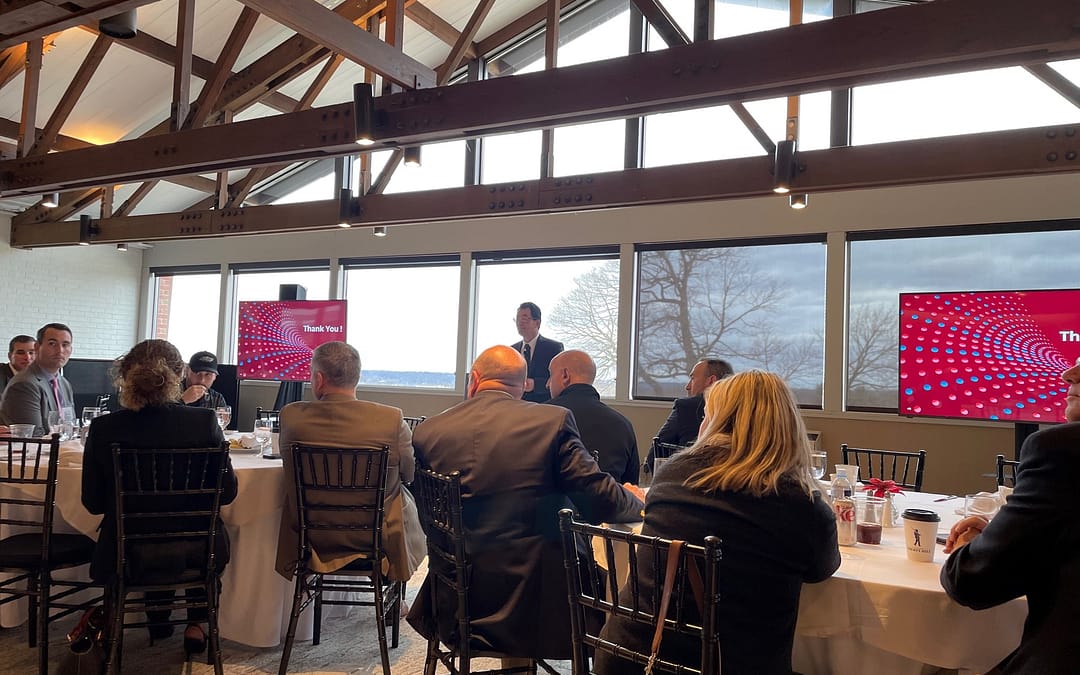There’s nothing like a fresh slate to imprint the year upon. CREW Greater Philadelphia, the PA/NJ/DE CCIM Chapter, IREM Delaware Valley Chapter, and the SIOR Philadelphia Chapter supported the sentiment in their collaborative event forecasting 2024’s outlook for commercial real estate. The speaker was one of those individuals who is a rare combination of someone highly intelligent who can still present ideas leaving you at the edge of your seat. For a CRE professional like myself tied to the health of the market dictating project volume, I had vested interest in the subject matter. Dr. Yun, the economist speaker, did not disappoint. His commentary was shaped by the great uncertainty around interest rates dictating borrowing at a national and local level. There were a couple of areas I found worth repeating (and also holding onto as a reference when the clock strikes 2025).
Transaction Volume
While the volume of deals in 2023 was cut by 60%, this was primarily a product of the credit situation tightening. The only way to improve this is for interest rates to decline. Commercial property prices were below pre-COVID time levels, however community banks felt the heat of federal rate hikes. Dr. Yun brought up an interesting theory that since larger banks have periodic “stress tests” with the Fed, there is more of a potential preparation for rate changes. Small banks typically have no indication of what’s to come. This situation played out in the case of Silicon Valley Bank’s collapse, as large venture capital firms withdrew their money amid fears of the local bank’s health.
Jobs and GDP
In our region, the number of jobs increased beyond pre-COVID levels (January 2017 was the beginning of the graph presented). Apartment vacancy rates are rising mainly because of the high supply. The demand hasn’t gone away, the supply is just so insurmountable. Given this climate, rent growth isn’t very strong and trending downward. Office space in Philly is classified by high vacancies and Dr. Yun made the stretch to say probably half the space is empty at this point. On the other hand, retail leasing is positive. We’d have to agree with this observation.
The Outlook
So what predictions were shared? Over the long term, interest rates will likely fall. National rent data will catch up with the local numbers and this will cause the Fed to stop raising rates. One interesting item shared was that the average price of mobile homes is at an all-time high. This is not due to wealth gain; however, a testament in housing shortage (specifically single family homes). Getting even more specific, Dr. Yun believed rates would be cut potentially up to 4 times in 2024. Time will tell – in the meantime, there will be much shaped by the winning administration this election day. While the economy being “good” or “bad” can often be characterized by political ties or opinions, it’s great to hear a statistical end to get the true perspective from data.
Thank you to CREW, CCIM, IREM, and SIOR for some awesome food for thought, actual food, and great company.

